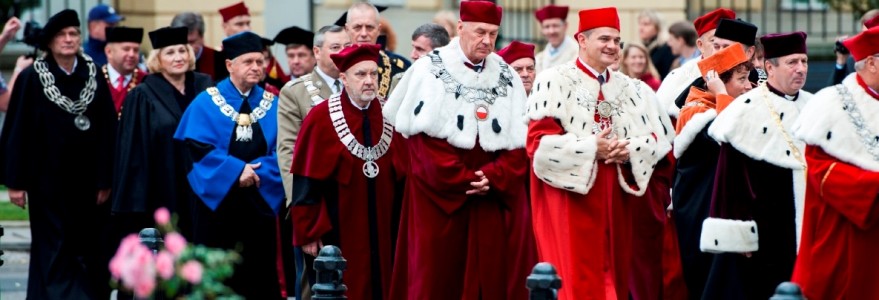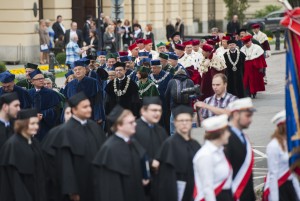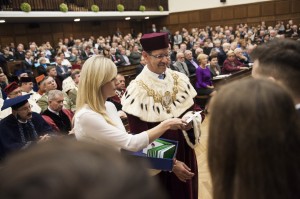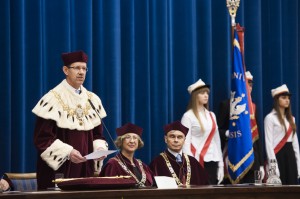1st October marked the inauguration of the academic year 2014/2015 in the University of Warsaw. The audience, gathered in the biggest university hall – the members of the Senate of the University of Warsaw, students and employees, as well as invited guests, including rectors of other universities and the representatives of the government – listened to the inauguration speech by professor Marcin Pałys, the Rector of the University of Warsaw.
The speech was devoted to the current status of higher education in Poland and the future of Polish science. Professor Pałys himself referred to them as “the call for wise idealism”, against the tendency which prevails in today’s Europe to standardize, unify and contain all science and learning in very narrow rankings and assessments. Below are selected fragments of the speech:
We are to educate people who will change the world
Several months ago we have published the results of the first study about the post-University fate of the alumni of the University of Warsaw. (…) And the results of this study are very optimistic. Our alumni usually have no problem with finding a steady job. 90 per cent of the polled had experience in the professional market, 86% in full-time employment. If our results are so good, it is exactly because our University refused to give in to the pressure of thoughtless practicism which is ever present in the public debate: that we are educating versatile persons, and not – as Florian Znaniecki would put it – a superficially educated “audience”.
The University is not a production site, and the goal of academic learning may not be just preparation to find a job according to the motto: “the sooner – the better”. A wise human being will be a good employee, not the other way round. We are to educate people who will change the world, and not cogs in a corporate machine, where mediocrity is elevated to the status of virtue.
There is no scientific development without taking risks
I want to encourage everyone to undertake great challenges, to pose really important questions and find answers to them. There is no development in science without taking risks. This is the core of independence, sense of scientific work – we undertake tasks without a roadmap, without being sure of the final result, taking into account its “futility”. The acceptance of risk is as necessary on the part of the academia, as on the part of those who decide about financing the research. If we will invest only in undertakings which always bring results, we will not have any world-class achievements. It is either this or that. As someone put it nicely – one cannot accept the utylitas to overshadow curiositas. Nobody may exempt us from the “suffering of thinking”.
All technology devoid of „social context” loses value
During the summer holiday, the Ministry of Science and Higher Education presented topics of focus for the nearest future. These include “actions for promotion of innovativeness”. If you look at the list, it is difficult not to have the impression that innovativeness is treated not as creativity, but only as something applied – inventions are understood as new tools, products, technologies which are then to be manufactured by the industry. This approach ignores innovations in other fields – such as discoveries in social sciences. At the same time the world, including Poland, evolves and there is an increasing demand for all sorts of social services related to the ageing of societies, changes of the nature and forms of work. Not to mention that all technology devoid of “social context” loses value. Stanisław Lem, who could hardly be suspected of giving resistance to modernity, said that the majority of technologies have luminous heads, but life gave them ominous tails – the gloomy reality. When investing in technological progress, we cannot run away from questions which may receive proper answers only with the help of the representatives of social sciences and humanities.






